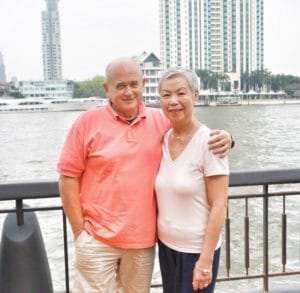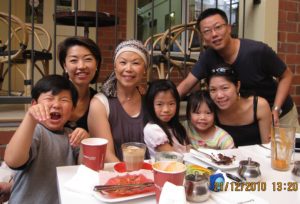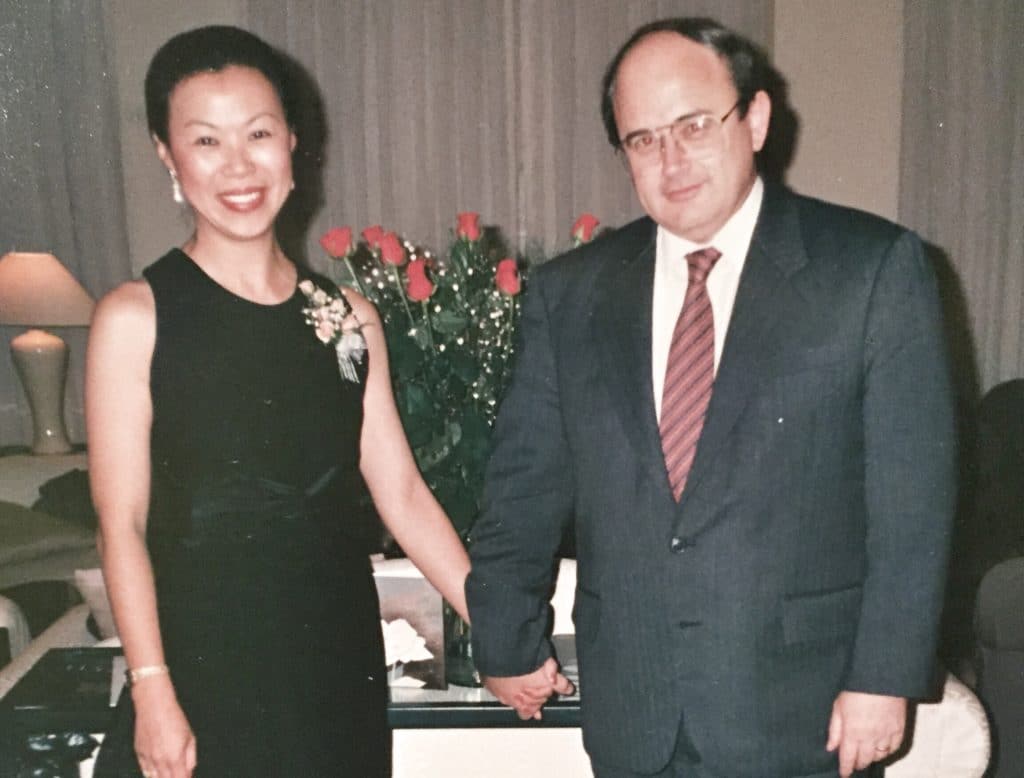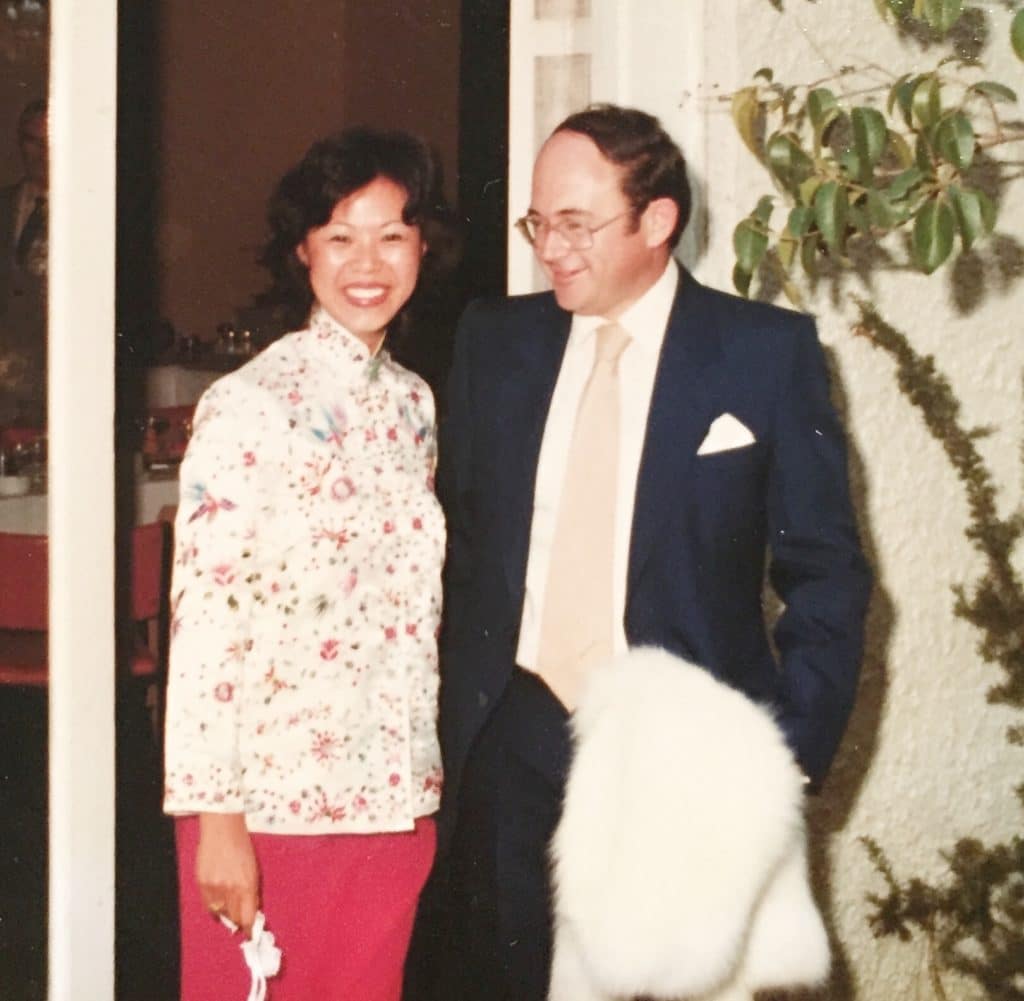(Graham, Eva’s stepfather, was married to Eileen for 36 years. He was her primary carer throughout her illness. He was retired when Eileen was diagnosed with ovarian cancer. His thoughts on the role he was asked to play, follow.)
It is faced by many. The shock and personal emotion of a cancer diagnosis.
Eileen’s diagnosis of ovarian cancer immediately took her into a world she vaguely knew existed but had never experienced. Her initial consultations with her GP and specialist surgeon set her on a path that suddenly involved her oncologist, radiographers and radiologists, pharmacist, chemotherapy nurses, and in time, a urologist, immunologist, geneticist, physiotherapist, home nurses and others.
From the outset it was clear to both of us that she could not navigate this pathway without a support network around her. Our circumstances were complicated because the children and other direct family members lived in other countries. The cliché that this would be a rollercoaster proved to be true. I joined the ranks of the primary care giver. This changed my life.
“Nothing is nicer than having someone who appreciates you in the smallest things. Accepts you in times of hardship. Comforts you when you are troubled. Loves you no matter what and is simply happy for having you in their life.”
What It Takes to be a Caregiver
Thousands of partners, children, family members and friends find themselves suddenly taking on this role. In my case the top priority was to provide emotional support. I accompanied Eileen to every consultation; I was with her for every chemotherapy session; I waited for her to have every blood test, CT scan and x-ray, I waited in her hospital room for her return from numerous surgeries; and whenever she wanted me to, I stayed overnight with her for many of her nights in hospital. And I cared for her when she was home recovering from surgeries and chemotherapy.
Then there was the management of her journey. I was required to learn more about the disease Eileen had and take on some rudimentary nursing skills. I helped Eileen to make appointments and enhanced my cooking and cleaning skills. I developed a quite complicated spread sheet to track each step of her treatment and pay the constant stream of medical and hospital bills and manage her health insurance claims. It was important to keep our children, other family and friends (many in other countries) constantly informed of her progress. We decided I would be the gatekeeper for a well meaning stream of questions about what the cancer was, what were the symptoms, the nature of the treatment and ‘get well” wishes.
There were Fun Times Too!
This is a long list of involvements and responsibilities. It might imply that times were always bleak and devoid of fun and happiness. That was not the case. Even during periods of intense challenge and treatment there was often space for a laugh. Full advantage was taken of periods of remission, including travel to be with children and family. Family relationships were strengthened, especially between Eileen and her children. Our love and regard for each other was never stronger.
It’s Okay to Seek Help
Even so, there were times that I floundered emotionally. It is not easy watching over your loved one when she is in pain and struggling herself to deal with what is happening to her. Home care usually meant that I would get tired from limited or interrupted sleep. I would question whether I was giving Eileen the full support she needed. It may have been a mistake not to make better use of support services that were available to me as a primary carer. That I never felt I needed to seek counselling  or some other kind of emotional support was probably because Eileen, ever concerned of the load that would fall to me at times, would do what she could to make looking after her as easy as possible. Eileen wanted to make the best of every day. Constant support from her children in particular eased my way. Her medical team was responsive and caring. This made it easier for me.
or some other kind of emotional support was probably because Eileen, ever concerned of the load that would fall to me at times, would do what she could to make looking after her as easy as possible. Eileen wanted to make the best of every day. Constant support from her children in particular eased my way. Her medical team was responsive and caring. This made it easier for me.
“To make a difference in someone’s life you don’t have to be rich, beautiful or perfect. You just have to care.”
I am sure other caregivers have faced a stiffer challenge. Whenever we looked around the oncologist’s waiting room, it was clear that the circumstances of each cancer sufferer are different and unique. My experience has shown me that it is important for carers to be self-aware and not be afraid to seek assistance from family and others. Counselling services are available to help with emotions that overflow. Trusted family and friends can be asked to give respite. I always felt it important to be an active member of Eileen’s wider support network of doctors, nurses, family, friends and others. Maybe, in that way, I received the care and concern that I needed to see my role through to the end.


Thank you Graham for sharing your thoughts on being a primary caregiver. It was a very daunting thing to take on. You did a wonderful job. I remember how happy and serene Eileen was when I came to visit her in the April of the year that she died. She loved you dearly. You are a very kind and gentle man. I love that you are now a blogger!! Eileen would be so proud of you! 😎💕
Thank you, Robyn! Mom was so blessed to have Graham in her life!
Hi Graham,
I have seen how supportive and loving you were to Eileen and she told me numerous times that she is so blessed to have you by her side during the good , the bad and ugly times when I told her that one of my friend’s husband left her when she was going through pains of having cancer. You are an inspiration to many carers. I hope your article will encourage those who are going through the same experience …
Thank you, Ivy❤️